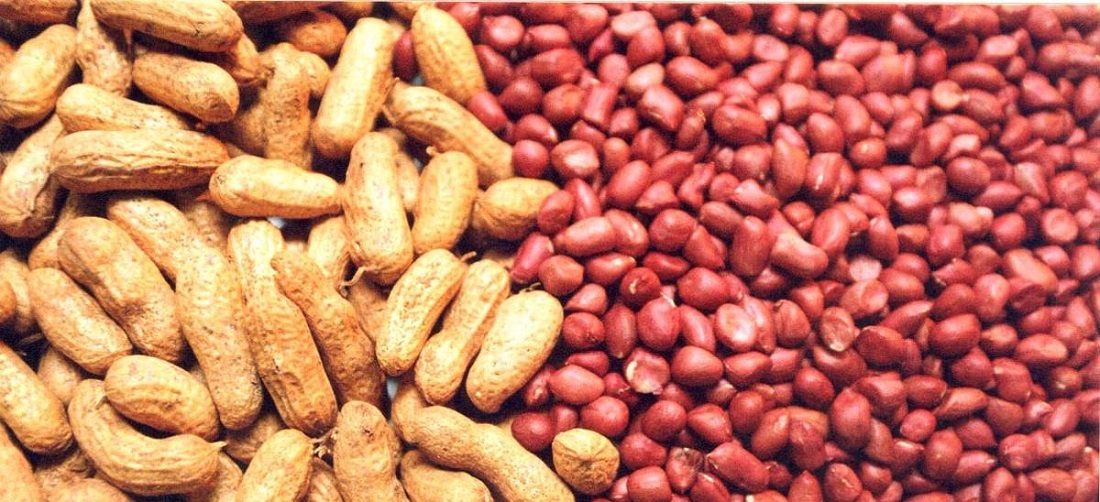
The war between Russia and Ukraine is impacting Brazilian peanut production
Mar, 04, 2022 Posted by Gabriel MalheirosWeek 202209
The Brazilian Agribusiness sector is increasingly concerned about the conflict in Ukraine for reasons that go beyond its dependence on imported fertilizers. The war has also begun impacting exports of many commodities, including peanuts from Brazil.
The two Eastern European countries are the final destination for almost half of Brazilian peanuts sent abroad, generating around US$ 344 million in sales last year.
According to the Ministry of Agriculture data, the Russians paid for 37.6% of that amount, and Ukraine 8.71%.
Despite the importance of peanuts in the Brazilian export basket to these two Eastern European countries, the commodity does not appear in the top 10 most exported products. The value of its foreign sales represents only 1% of what the country ships from soybeans, for example.
Half of all peanuts produced in Brazil are exported, and the rest are sold in the domestic market.
In Russia and Ukraine, peanuts are consumed as an appetizer and as an ingredient to prepare sweets. Shipments from Brazil happen throughout the year.
“Peanuts were in the process of being shipped [to Russia and Ukraine], but with the start of the war, the exporter held the cargo,” says Luiz Antônio Vizeu, president of the government of São Paulo’s Peanut Sector Chamber.
Check below the track record of Brazilian exports to Russia, with emphasis on the exports of peanuts (HS 1202), the most commercialized commodity between the two countries in the years 2020 and 2021. The data are from DataLiner.
Brazilian exports to Russia | Jan to Dec 2020 – 2021 | TEU
Source: DataLiner (click here to request a demo)
Ukraine’s military closed the country’s ports shortly after the Russian invasion in the early hours of February 24. Parallelly, shipping companies are temporarily suspending the transport of containers to Russia, especially after the West imposed sanctions on Moscow.
One of them is Maersk, which made its decision on Tuesday (1), following similar deliberations by Singapore-based Ocean Network Express (ONE), Germany’s Hapag Lloyd, and the MSC shipping group, based in Switzerland.
Halted loads and uncertainties
Most peanuts leave the country through the Port of Santos on the coast of São Paulo, while only a tiny portion departs from the Port of Paranaguá. Brazil’s Southeast is the hub for peanut trade as the state of São Paulo produces roughly 93% of the 700 thousand tonnes of peanuts harvested each year in the country.
A company based in the municipality of Tupã, one of the most important peanut-producing regions in the country, informed last Monday (28) that it has almost 100 containers headed to Russia and another 30 waiting for clearance in Instanbul that initially going to Ukraine.
Another 20 containers did not set sail as a result of the conflict.
Until last year, the sale of peanuts was going through a good moment in the market. The average price of a bag of peanuts in 2020 was negotiated at R$84.78, rising to R$96.52 in 2021 but falling to between R$65 and R$70 reais this year due to an increase in supply.
Producers are now concerned that the conflict will further depreciate prices. Furthermore, businesses that have already signed contracts are worried about not being paid due to sanctions, such as those that have blocked money from Russians in international banks.
Making a name for itself in the world
According to the Federation of Industries of the State of São Paulo (Fiesp), Brazil is the fifth largest peanut exporter, trailing India, the United States, Argentina, and China.
The Brazilian “snack” has been gaining more and more space across the globe, gaining additional momentum in 2019 after a decrease in Argentine production. “Three years ago, Argentines lacked peanuts and, then, Russia and other countries began to buy more and more of the Brazilian product,” says Vizeu.
Furthermore, the recent increase in the quality standards of the national snack has made it well accepted in very rigid markets, such as the European Union.
-
Grains
Jan, 31, 2023
0
Brazil’s soybean line-up at 1356 mln t in January
-
Ports and Terminals
Apr, 15, 2024
0
Rio Grande Port Grows as Gateway for Imported Vehicles in Brazil
-
Other Cargo
Mar, 30, 2023
0
Brazil’s Jan-Feb exports of poultry genetic material grow 91.8%
-
Grains
Apr, 27, 2022
0
Wheat exports from Brazil to reach 156,200 tonnes in April

